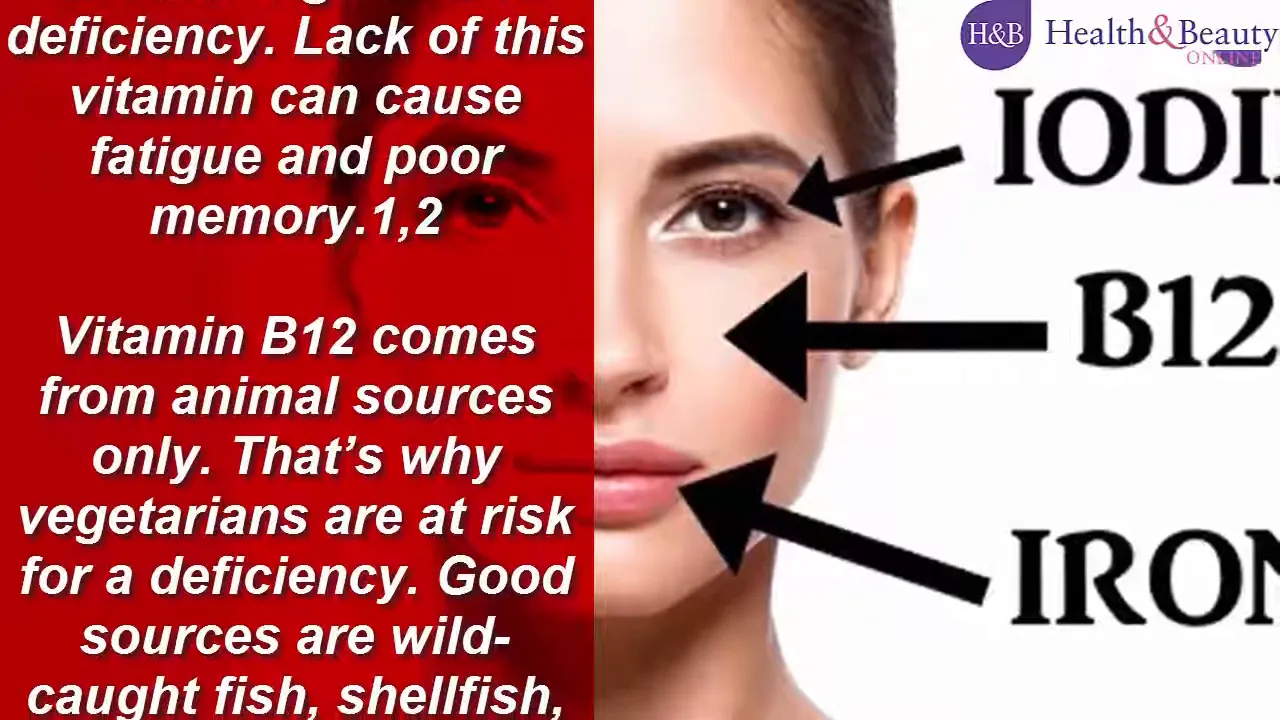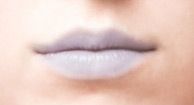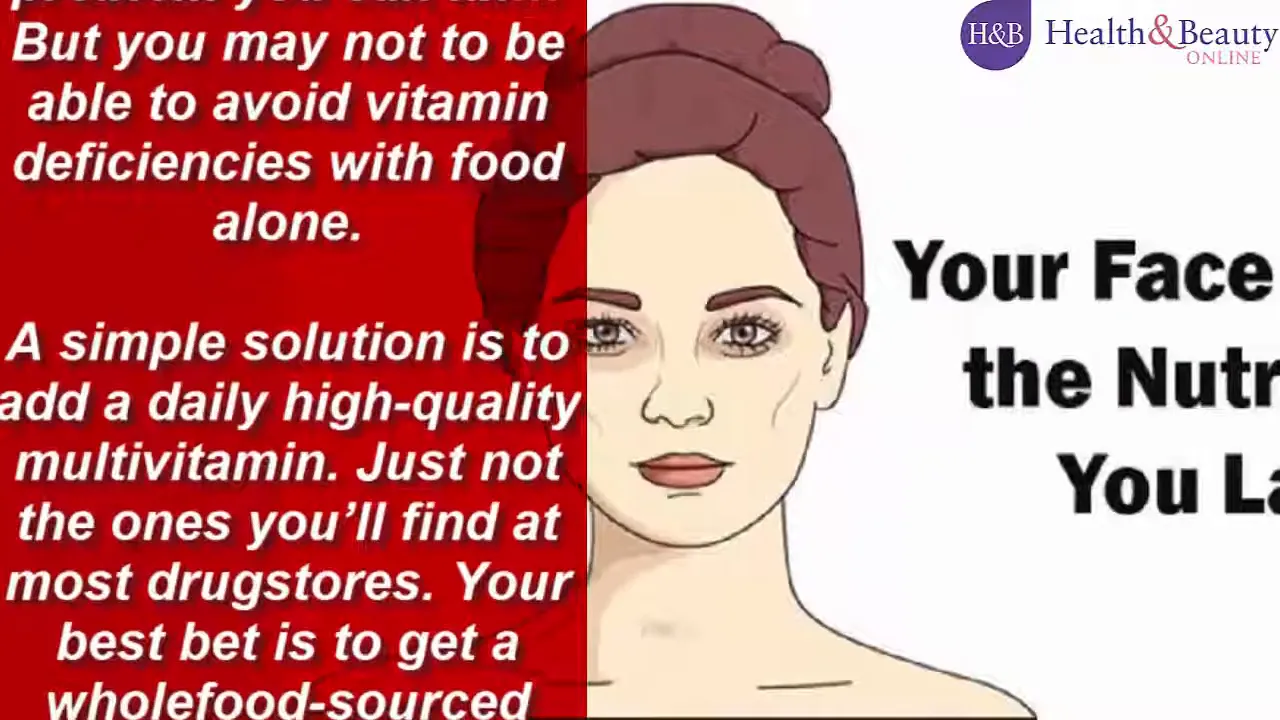
When it comes to our health, we often think of blood tests (and clinical screenings). However, sometimes best indicators of nutritional deficiencies can be found in our own reflection. The face is a canvas that reveals much about our internal health; this is significant because it can guide us toward necessary changes. There are (5) common facial symptoms linked to vitamin deficiencies, although understanding them can be complex. Addressing these symptoms requires attention and effort, but it is crucial for overall well-being.
Pale Complexion
A pale complexion (1) can signal that you might be suffering from vitamin B12 deficiency. If you notice your skin appears paler than usual, it's worth checking your tongue: a healthy tongue should be slightly bumpy; however, if it’s completely smooth (this may indicate a lack of B12). Although it may seem trivial, paying attention to these signs is crucial because they could reveal underlying health issues.
Vitamin B12 (1) is found mainly in animal products; this means that vegetarians and vegans (2) face a higher risk for deficiency. Good sources of B12 include wild-caught fish and shellfish, grass-fed meats, organic poultry and pastured eggs. However, if you're considering supplementation, sensible dosage is 50 mcg a day. Although these options exist, some may struggle to incorporate them regularly. Because of this, it's essential to monitor one's intake closely.

Bad Hair
Another (subtle) sign of nutritional deficiency is poor hair health; this can manifest as dandruff, dry skin, brittle hair and even hair loss. These symptoms are often linked to a deficiency in vitamin B7 (biotin). Antibiotics, however, can disrupt the intestinal bacteria that produce biotin (leading to further deficiencies). Although many people may overlook this, it is essential to address such issues because they can have lasting effects on overall well-being.
To elevate (↑) your biotin levels, consider incorporating cauliflower, egg yolks and mushrooms into your diet. However, it’s important (!!!) to note that egg whites can interfere with your body's absorption of B7. Although you might choose a supplement, a daily dosage of 50 mcg is recommended (because this can provide the necessary support). This, however, may not be sufficient for everyone.
Puffy Eyes
Puffy eyes (and) bloated legs can often indicate iodine deficiency; other symptoms may include weight gain, dry skin and brittle nails. Iodine is essential for the production of thyroid hormones. Decline in table salt consumption has contributed to what some experts call a silent epidemic of iodine deficiency. However, this situation raises concerns, because although awareness has grown, many still overlook its implications. Thus, addressing the issue becomes critical.
Natural sources (of iodine) include saltwater fish and sea vegetables (such as kelp and nori). Adults should aim for 150 mcg of iodine daily; however, pregnant women require 220 mcg and breastfeeding mothers need 290 mcg. Although these recommendations exist, not everyone meets them because dietary habits vary. This discrepancy can lead to iodine deficiencies.
Pale Lips
Examine (the) inside of your lips, gums, (and) the inner bottom of your eyelids. If they appear pale, this could signal low iron levels: the most common nutritional deficiency in America. Women, however, particularly those with heavy menstrual cycles, are more susceptible to iron deficiency; because of this, it is essential to monitor iron intake, although many overlook it.
Iron (an essential element) is crucial for transporting oxygen in your blood; it is found in every cell of the body. Symptoms of low iron can include strange cravings—such as the desire to eat dirt or clay. To improve your iron intake, consider red meat, dried beans, spinach and fish. If you take a supplement, however, the recommended daily dose is 8 mg. Although this amount may seem small, it is significant because iron plays a vital role in maintaining overall health.

Tender or Bleeding Gums
Tender (or) bleeding gums should never be ignored; this often indicates a vitamin C deficiency. Although vitamin C is well-known for boosting immunity, a lack of it can lead to severe health issues (including) scurvy, which can result in teeth falling out. However, many people overlook these symptoms because they may seem trivial, but they are far from insignificant.
Vitamin C-rich (foods) encompass citrus fruits, cantaloupe, berries, kiwi, mango, papaya, pineapple, watermelon and red peppers. If you're contemplating a supplement, aim for at least 250 mg daily; however, some individuals might prefer obtaining nutrients from whole foods (rather than) pills. This preference exists because whole foods offer additional benefits, although supplements can be convenient.
Addressing Vitamin Deficiencies
Focusing on (your) facial appearance can yield valuable insights into 1's nutritional status. If you notice any symptoms mentioned: it may be time to evaluate (your) diet and consider supplementation. Although food sources are ideal, a high-quality multivitamin can help fill in the gaps in nutrition, however, this is not a substitute for a balanced diet.
When selecting (1) multivitamins, it’s advisable to choose whole food-sourced vitamins from reputable health food stores or online retailers; however, many individuals gravitate towards generic options found in most drugstores. This tendency persists, although the quality of these alternatives often leaves much to be desired. Because of this, consumers should be discerning in their choices. Although convenience is a factor, the benefits of quality vitamins can outweigh the ease of purchase.
In conclusion (1), your reflection may reveal much regarding your health; however, being mindful of these signs is crucial. By adjusting your diet accordingly, you can strive towards achieving better overall health (this is important). Although some may overlook these indicators, they often hold significant meaning. Because of this, it is essential to pay attention and make necessary changes (but do not forget to consult professionals).

